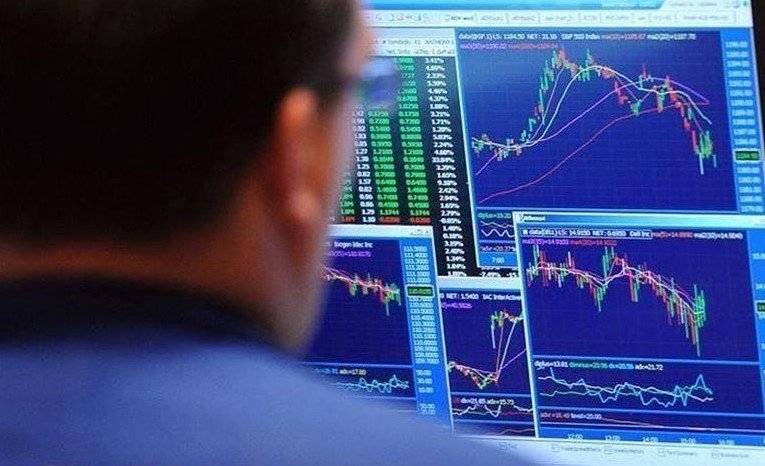Israeli markets rallied sharply after the United States launched airstrikes on Iranian nuclear sites, sending a wave of investor confidence through Tel Aviv and beyond.
The mood on the trading floor in Tel Aviv flipped from tense to euphoric by mid-morning Sunday. Traders were glued to screens tracking not just market indices but war headlines. Minutes after news broke that the U.S. military had bombed multiple nuclear facilities in Iran overnight, the Tel Aviv 125 index jumped 1.3%. It was the sixth straight day of gains—enough to break records.
The underlying sentiment? Investors are betting that the shockwaves from Washington’s intervention might actually bring some strategic clarity to an otherwise anxious region.
War News Meets Market Surge
This wasn’t just any market rally. This one unfolded as Israel reeled from retaliatory missile attacks from Iran. Sirens had sounded across Tel Aviv just hours earlier.
And yet, traders didn’t flinch.
The TA-35, Israel’s blue-chip index, was up 1.2% in Sunday afternoon trading. By close, government bond prices had ticked up 0.2%. Despite everything, optimism over regional security—of all things—seemed to be the driving force.
One trader at a prominent Tel Aviv investment house, speaking under condition of anonymity, put it like this: “We’ve been through worse. This time, there’s a belief the U.S. has drawn a clear red line.”
It’s an odd sentiment. But it’s rooted in history. Every major escalation in the region has seen markets react unpredictably. This time, the story seemed different.

The Trump Effect and Market Psychology
President Donald Trump’s remarks after the strike left little room for doubt. “We obliterated Iran’s primary nuclear sites,” he declared from the White House lawn. “The world is safer today.”
That might be debatable diplomatically, but investors took the cue.
Ronen Menachem, chief markets economist at Mizrahi Tefahot Bank, didn’t mince words: “The destruction of Iran’s key nuclear facilities by the U.S. military is, of course, a positive development… in terms of improving the regional security environment and reducing Iran’s military and nuclear capabilities.”
In short, markets like decisiveness—even if that decisiveness comes via bunker-busting bombs.
Menachem added something else that got attention.
-
“Looking at the medium- to long-term — which is relevant for many strategic investors — this could represent a genuine opportunity, possibly related to the prospect of closer ties between the Saudi and American axis.” *
One sentence, multiple signals: stability, alliances, and future trade alignment.
Six-Day Rally Breaks New Ground
Since Israel launched its own strikes on Iran on June 13, local markets have stayed on an upward track. But it was this latest U.S. move that gave the rally real legs.
Below is how the TA-125 has performed since the initial wave of Israeli strikes began:
| Date | TA-125 Daily Gain | Closing Value |
|---|---|---|
| June 13 | +0.6% | 1,920 |
| June 14 | +0.9% | 1,937 |
| June 16 | +1.1% | 1,958 |
| June 17 | +0.7% | 1,972 |
| June 19 | +1.4% | 2,000 |
| June 23 | +1.3% | 2,026 |
That’s nearly a 6% gain in just over a week. Not bad for a market supposedly sitting in a war zone.
One-line interjection here: investors clearly aren’t betting on doom.
Bonds Up, Risk Premium Down, Shekel Steady
The bond market isn’t lagging behind, either.
Israel’s sovereign bond prices edged up another 0.2% Sunday. The risk premium, that sticky indicator of investor fear, has fallen across the board—something that hasn’t happened this swiftly in years.
The Israeli Shekel? Closed for trade on Sunday, but it’s had a solid June. From 3.61 per U.S. dollar on June 11, it strengthened to 3.48 by Friday—a 1% rise for the month.
For anyone watching closely, the numbers say more than the pundits.
Bullet-point recap from this part of the market:
-
Israeli bonds are in demand
-
Shekel is climbing
-
Regional risk is, oddly, being priced as lower
Some call it irrational. Others call it early positioning.
On the Ground, Caution Still Reigns
None of this market enthusiasm should be confused with actual calm.
Sunday morning in Tel Aviv saw real damage. Iranian missiles—launched in retaliation for the U.S. strikes—hit several residential neighborhoods. At least 17 people were injured, including two children. Emergency services were stretched thin.
“People are scared, but the financial system isn’t,” said a source at the Tel Aviv Stock Exchange. “There’s a bit of a disconnect, and everyone knows it.”
That gap between street-level reality and investor behavior is stark. But it’s not new.
Markets, after all, are forward-looking. And right now, they’re looking toward a future where the U.S. has drawn in deeper, and Tehran might think twice.
What Comes Next?
Analysts remain split. Some warn that Tehran’s next move could wipe out market gains in one missile volley. Others believe the involvement of the U.S. changes the long-term playbook for everyone, including Riyadh, Abu Dhabi, and even Ankara.
“Investors are signaling a belief that this isn’t World War III,” said a London-based risk consultant working with Gulf sovereign funds. “It’s surgical, it’s strategic, and so far, it’s being measured.”
But nobody’s pretending it’s over.
That includes those who keep refreshing their trading screens between glances at bomb shelter alerts.
